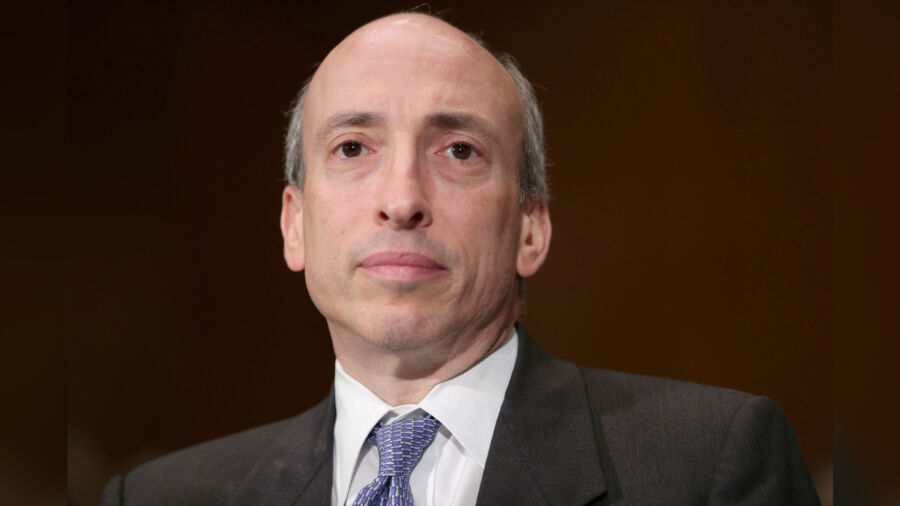Securities and Exchange Commissioner (SEC) Chair Gary Gensler supported the White House’s budget boost request for the stock market watchdog. But Mr. Gensler warned that the funds appropriated were tens of millions of dollars less than what his federal agency originally requested for the upcoming fiscal year.
The Senate Appropriations Committee appropriated $2.4 billion to the SEC. This was $194 million more than fiscal year 2023 but nearly $73 million less than Mr. Gensler’s initial proposal. This, Mr. Gensler told lawmakers, would prevent the SEC from keeping up with the various market challenges present today.
During the July 19 Senate Appropriations Committee hearing, Mr. Gensler explained that the SEC’s fiscal year 2024 request would ensure the agency’s Examinations Division personnel would increase to 1,144 full-time examiners. While the organization is 3 percent larger than it was in 2017, Mr. Gensler purported that the financial markets have grown exponentially in this span.
According to Mr. Gensler, the number of clients of registered investment advisers surged close to 70 percent from 34 million to 57 million. In addition, average daily trading in the equity markets expanded from 30 million transactions to 77 million transactions.
This type of growth and immense change can “also mean more possibility for wrongdoing,” he asserted.
“As the cop on the beat, we must be able to meet the match of bad actors,” Mr. Gensler said. “Thus, it makes sense for the SEC to grow along with the expansion and increased complexity in the capital markets.”
He cited the “Wild West of the crypto markets” as an example of this concern. He revealed that the SEC plans to install “new instruments, experience, and assets” with the objective to address misconduct within the cryptocurrency industry.

“Technology is also rapidly transforming our markets and business models, whether it’s electronic trading the cloud, artificial intelligence, predictive data analytics,” he said. “The Wild West of the crypto markets is rife with noncompliance where investors have put hard-earned assets at risk in a highly speculative asset class.”
“With funding to meet the scale of our mission, we can be an even stronger advocate for the American public—investors and issuers alike,” Mr. Gensler added. “The fiscal 24 budget request would give the agency the resources to better protect the American public.”
Pushback From Lawmakers
Mr. Gensler did receive some pushback by lawmakers throughout the hearing, including Sen. John Kennedy (R-La.), who asked, “Where was the SEC?” on the issue of the failed crypto exchange FTX and its former CEO Sam Bankman-Fried.
Before FTX decimated the crypto market, the SEC possessed the authority to regulate crypto. So, the senator noted, the SEC could have had an investigator speak with Mr. Bankman-Fried and done some digging into what was happening.
“This was an accident waiting to happen,” Mr. Kennedy said.
Mr. Bankman-Fried is set to stand trial in October on 13 federal counts, including conspiracy to commit money laundering and wire fraud. If convicted on all 13 charges, he could face life in prison.
Sen. Richard Durbin (D-Ill.) also questioned if the SEC maintained enough funding to watch and police the crypto industry. But, according to Mr. Gensler, this was part of the reason why the SEC sought an extra $73 million to add another 170 employees for examinations and enforcement.
SEC Fears AI Is the Threat of the Future
Meanwhile, since transitioning from the Commodity Futures Trading Commission to the SEC, Mr. Gensler has targeted Bitcoin and the entire cryptocurrency industry. Last month, he told CNBC that the U.S. economy does not need cryptocurrency or other digital tokens.
“We already have digital currency. It’s called the U.S. dollar. It’s called the euro, or it’s called the yen; they’re all digital right now,” he told the business news network.
However, in recent months, the SEC chief has also been homing in on generative artificial intelligence (AI).
In a speech delivered to the National Press Club on July 17, Mr. Gensler contended that advancements made in generative AI could “heighten financial fragility” and “exacerbate the inherent network interconnectedness of the global financial system.”
As a result, he requested SEC staff to produce regulatory recommendations that can address how AI could serve as a conflict of interest, benefiting advisers and brokers while harming investors.
“In finance, conflicts may arise to the extent that advisers or brokers are optimizing to place their interests ahead of their investors’ interests,” Mr. Gensler stated. “That’s why I’ve asked SEC staff to make recommendations for rule proposals for the Commission’s consideration regarding how best to address such potential conflicts across the range of investor interactions.”
In October 2022, Mr. Gensler spoke at the AI Policy Forum summit at MIT, calling for computer engineers and academics to develop unbiased algorithms as predictive data analytics becomes a new tool for capital markets.
“There’s a risk that the crisis of 2027 or the crisis of 2034 is going to be embedded somewhere in predictive data analytics,” the SEC head, who made similar remarks in front of the Senate Appropriations Committee, said.
From The Epoch Times

